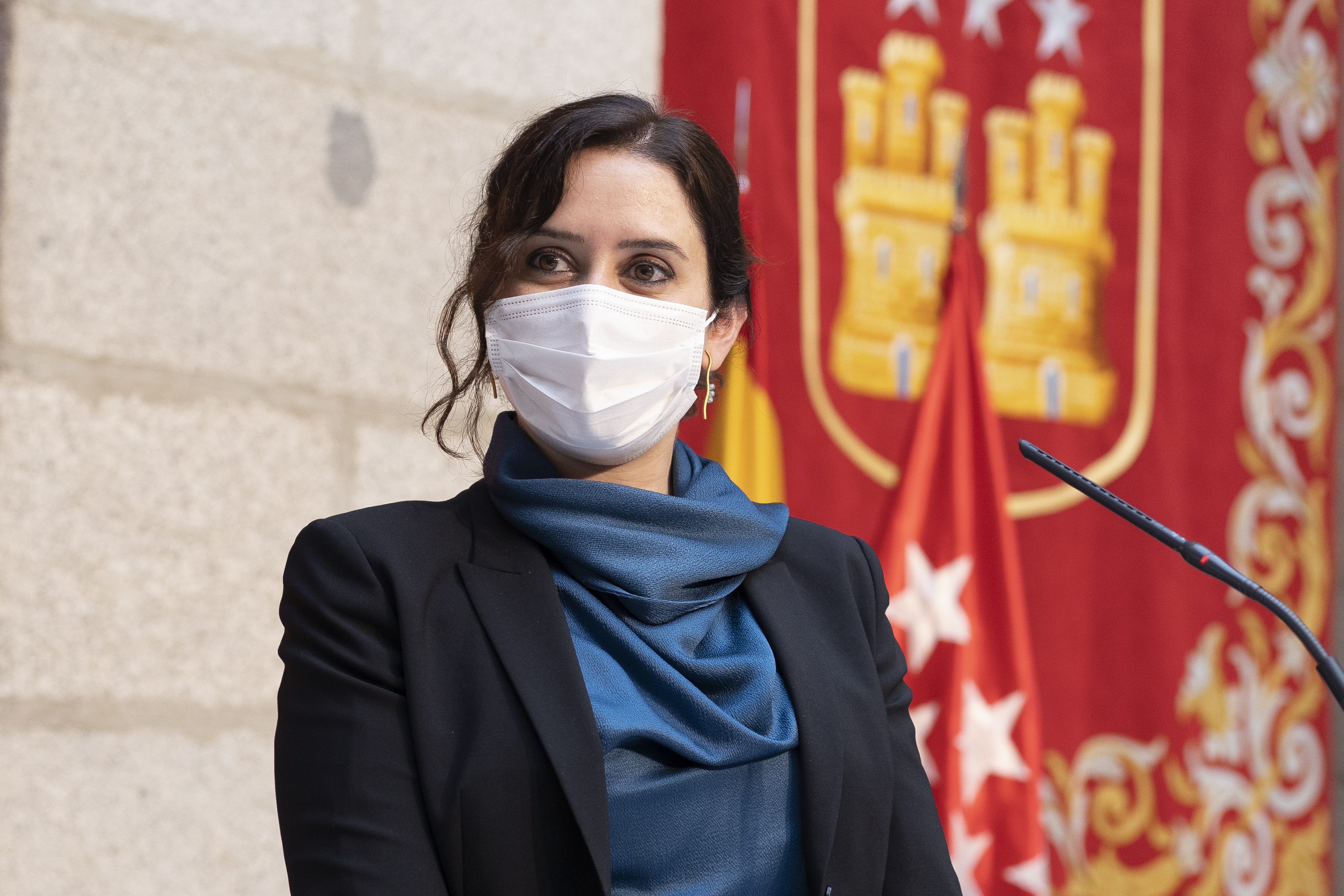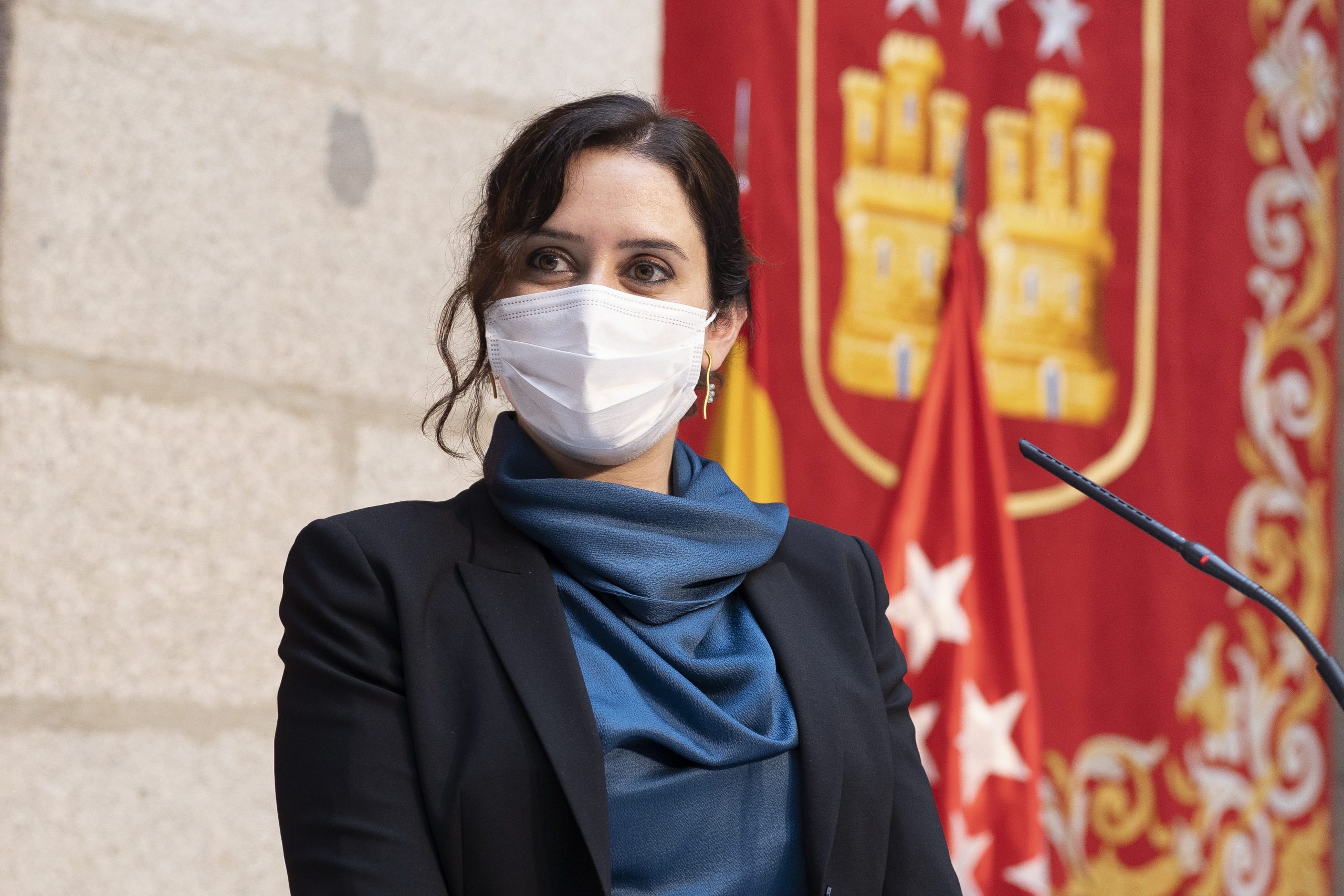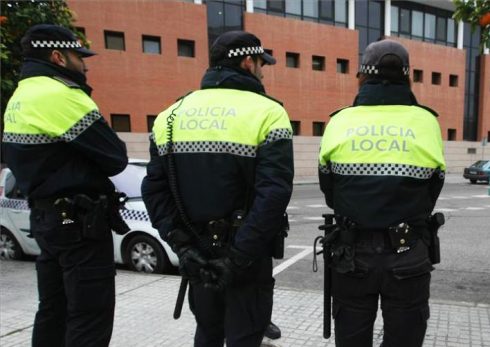Madrid’s conservative leader Isabel Diaz Ayuso stepped down and dissolved the right-wing coalition regional government on Wednesday triggering a snap election.
The shock move, described as a “political earthquake” by Spanish media, reportedly comes as opposition parties prepared to file a motion of no confidence against Ayuso.
The news in Madrid was announced by a very critical regional vice-president Ignacio Aguado from Ciudadanos party in an impromptu televised address on Wednesday morning.
“From our point of view it is the greatest of irresponsible actions made in the year and a half since she took over the presidency of the Community of Madrid,” Aguado said. “Not only because right now the people of Madrid need stability above all else, but because there are more than 400 people still being treated in Madrid’s hospitals and 94,000 more unemployed people in the region.
“We are still suffering a very weakened economy, one that needs certainty and not recklessness,” he added.
Ayuso appeared briefly to confirm that she had signed a decree to dissolve Madrid’s Assembly at 12 noon and asked “forgiveness” from Madrid’s citizens for calling early elections.
Since August, 2019, Ayuso from the Popular Party has led a coalition with junior partner Ciudadanos (Cs) and with support from Spain’s far-right Vox party.
But the fragile coalition between the PP and Ciudadanos has been under strain amid long standing tensions over the handling of the coronavirus pandemic.

It appears that the news of an agreement between Centrist Ciudadanos and Spain’s Socialists (PSOE) in the Murcia region sparked the knee-jerk reaction from Ayuso.
Her decision came within hours of Ciudadanos teaming up with PSOE to present a motion of no-confidence against the PP at both the regional and municipal level in Murcia.
By publicly breaking ranks with the PP in Murcia, Ciudadanos raised the spectre of similar no-confidence votes in other regions where they rule in coalition, including Andalusia and Castille and Leon.
Spanish media speculated that Ayuso feared a similar power-play in the Madrid region and dissolved the government before such a motion of no-confidence could be filed against her.
Legal rules mean that once such a censure has been filed, early elections cannot be called.
The last regional elections took place on May 26, 2019, when the PSOE won the highest number of seats (37), but fell short of an absolute majority, paving the way for the PP and Ciudadanos – with the votes of far-right Vox – to take office.
The new election is tipped to take place on May 4th according to sources reported in Spanish media.
Ayuso has been the leading critic of Prime Minister Pedro Sanchez’s government and its dealing of the coronavirus, refusing to follow national recommendations to impose harsh restrictions on the capital.
Instead Madrid has seen the loosest rules across Spain in terms of curfew, restrictions on movement and has kept bars and restaurants open, even when other regional administrations with lower infection rates imposed stricter measures.
READ ALSO: Partido Popular could be ousted from controlling Spain’s Murcia region for the first time since mid-nineties
Click here to read more Politics News from The Olive Press.








